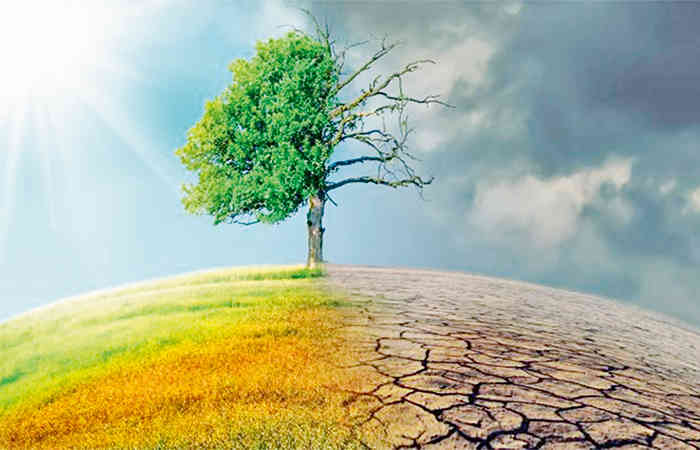
- Financial institutions need to be resilient against possible losses from natural disasters
While the country's banks, especially the public sector banks, have not yet recovered from the effects of telecom scams, bank scams involving Vijay Mallya and Nirav Modi, our banks have been hit financially by natural disasters like the Corona epidemic and hurricanes. Epidemics like the Corona occur once in a hundred years against which banks find their way, but natural disasters such as hurricanes, floods and earthquakes due to global warming are emerging as a new threat to the country's economy, especially to financial institutions like banks. A recent report said that the hurricane rate in Gujarat has tripled between 190 and 2017 and the surface temperature of the Arabian Sea has also risen by 1.30 to 1.30 Celsius in the last two decades. In the last decade since 2008, natural disasters have hit nine districts in India and the number of climate-related incidents has increased 18-fold. The report recommends taking the growing incidence of hurricanes seriously. The US president has even instructed his administration to take all necessary steps to mitigate the risks to the financial system posed by climate change.
Given the hurricane situation that has plagued India for the past two years, the exercise in reforming the banks seems to be breaking the deadlock for the government. Given the aggressive measures taken by the government and the Reserve Bank over the last three-four years to get the country's banks out of the problem of non-performing assets (NPAs), everyone in the country is now questioning whether the condition of banks will improve and whether banks will turn a profit. But now there are indications that natural disasters will be more catastrophic for banks than man-made ones.
Disasters like hurricanes do not go unanswered. Estimates of the damage caused by last week's hurricanes across the country, especially to agriculture and industry, are yet to be ascertained, but it is certain that the burden will not remain on the banks.
The main role of the country's banking sector is to provide financial support to achieve the growth target. But climate change or global warming has signaled the country's banks to be cautious in lending money. Climate risks have posed risks not only to banks but also to the financial stability of insurance companies and other financial institutions. This fact has made it necessary for banks to allocate credit effectively. In the current climate of climate change, banks are increasingly choosing to lend to weather-resistant sectors. With the change in climate, lending to sensitive sectors is becoming more and more risky for banks. Climate change has led to disasters such as floods, hurricanes, and earthquakes. These catastrophes have a long-term effect not only on the economy as a whole but also on trade.
An epidemic like the Corona, which strikes only once in a hundred years, engulfs the country's economy as well as the entire economy, as seen in the whole world during the Corona era. Corona's impact on the country's insurance sector In the financial year ended March 31, 2021, non-life insurers, including health insurers, received a total of Rs 120 crore in claims for corona treatment, covering a total of Rs 120 crore.
On the other hand, as on May 15 of the current financial year, a total of Rs 5 crore has been received by insurance companies for corona disease, which is about 5 per cent of the claims for the entire last financial year. If this trend continues, the balance sheets of insurance companies will be under stress. Don't think so next time. This is not just about insurance companies, but the exact extent of the impact on the country's banking sector and the economy as a whole can never be ascertained. There have been many opinions about whether coronary heart disease is a naturally occurring disease.
If we talk about the last two years, the intensity of the hurricane that hit the country could be known in advance due to modern technology. Based on this information, major damage to human life could be prevented but damage to agricultural crops and goods could not be prevented. In such a scenario it is now necessary for banks to assess how much weather risks can affect their business. A recent study found that companies with high carbon OK are more likely to default. Because the whole world is fighting against polluting industries today and every country is tightening the standards against it. Pollution-intensive industries are subject to heavy fines by regulatory authorities and are at risk of being shut down if they do not show discipline.
It has become important for banks to assess the risks associated with climate change in the same way that banks take into account the trade risks of the borrower when approving loans.
Comments
Post a Comment
What you think give us your idea about this article we publish your words on our site